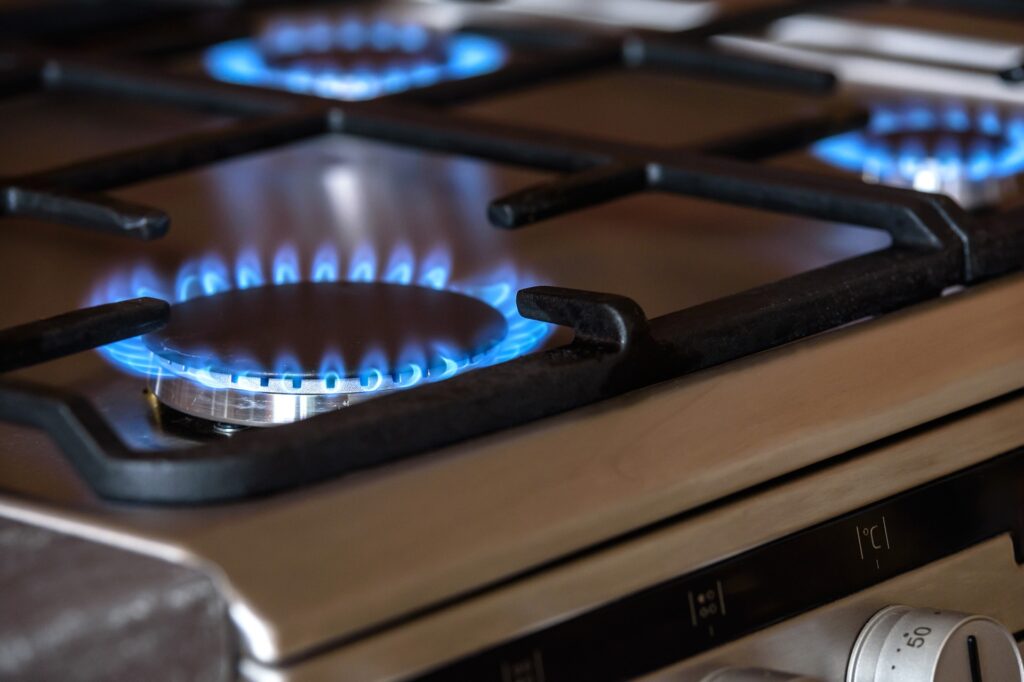Pursuing heat pumps and energy efficiency measures would be faster route to get off of Russian gas than proposed expansion of drilling in the North Sea.
Research from the Energy & Climate Intelligence Unit (ECIU) shows that as the UK meets just 4% of its gas demand using Russian imports – the equivalent of £6 million a day under recent wholesale prices – that demand could be entirely wiped out in just five years using heat pumps and insulation.
As the cost of gas is dictated by the international market, the only way to truly protect customers from volatile pricing is to switch away from gas to electrified solutions argued the ECIU. By focusing on heat pumps and insulation, the UK could protect 6.5 million vulnerable households from gas price increases.
By comparison, expanding North Sea oil and gas fields wouldn’t necessarily reduce prices – as oil and gas companies are not bound to sell to the UK and given a high price environment would simply sell to the highest bidder, as they do now – and it would take until at least 2028 before the first new fields would come be online.
Dr Simon Cran-McGreehin, head of analysis at the ECIU said: “The net zero path leads us to common sense home insulation and clean, renewable, homegrown energy that enables us to cut dependence on other countries like Russia for gas and oil. It’s a permanent solution and the UK needs to embrace it with greater urgency if we want to be truly energy secure.”
On average, a heat pump will be £260 cheaper per year than a gas boiler from April 2022 , when the power price cap rises. Ofgem unveiled in February that it is set to go up by 54% for the summer period, driven by the high gas prices, which account for at least £500 of the £694 increase.
A further £68 of the increase is due to supplier collapses, with 27 suppliers failing and Bulb entering special administration last year, most as a result of the squeeze placed on them by high gas prices.
In April, the new Boiler Upgrade Scheme – which was announced in the government’s Heat and Building Strategy – is also set to kick in, which offers households £5,000 to switch to a heat pump, further adding incentive to the move.
While one oft cited criticism of heat pumps is that they don’t work in all homes in the UK, a study by the Electrification of Heat project in December found that all home type in the country are suited to having a heat pump. Of the housing stock currently, there are an estimated nine million homes with a good level of thermal efficiency where a heat pump could be easily fitted.
“A massive scaling up of energy efficiency and heat pumps are the obvious response to sky high gas prices and the dependency on gas,” said Dr Jan Rosenow, principal and European Programme director at the Regulatory Assistance Project (RAP). “The government’s targets are ambitious but not ambitious enough. We could go faster and further as the Committee on Climate Change have shown time and time again, and get ourselves off Russian gas well before 2027.”
The UK is aiming for 600,000 heat pump installations per year by 2028, as set out in Johnson’s Ten Point Plan in November 2020. However, many have criticised the pace at which the country is decarbonising its heating system, leaving the vast majority of households dependent on gas boilers.
For example, the Climate Change Committee said this week that the Heat and Buildings Strategy “leaves many questions unanswered”, while a BEIS select committee in February warned that the government is “not yet on track” to deliver on its own residential heating decarbonisation targets, and that more urgent changes are required.
In response to the current energy crisis, Prime Minister Boris Johnson has announced that a new energy strategy will be published imminently. Speaking as part of a press conference earlier this week, he said the UK would look at the possibility of using more of its own hydrocarbons, as well as expanding renewables and nuclear.
A recent poll from Opinium for ECIU found that the general public supported the reduction of the UK’s reliance on Russian gas by pursuing more renewable energy. It found 57% of people supported the expansion on renewables and the reduction of gas usage, while just 29% saw an increase in the UK’s domestic supply of gas through expanded drilling and fracking as the solution.






